Professor Interest Stems from Conflict in Ukraine
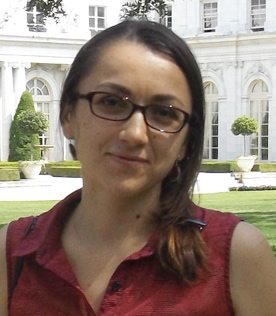
Olena Lennon began teaching in her homeland Ukraine, during which time she worked closely with the Peace Corps. That was her first experience working with young Americans who wanted to change the world, she said.
“It changed my life and I saw firsthand how they changed my peers’ lives and the young people’s lives in Ukraine,” said Lennon. “I started really believing in this idea of soft-power and changing people’s lives through education and the people going to other countries and interacting with other people. So for me it was a transformative experience and I wanted to be a part of it and I wanted to make it my profession.”
She got the opportunity to do just that when she got a Fulbright Scholarship that allowed her to come to the United States and purse her master’s degree and doctorate.
“I was grateful to the Department of State and American taxpayers for allowing me to have this opportunity as it further reinforced my belief in self power, and this idea of international exchange as the best way to change people’s minds, value sets, and make this a better world,” said Lennon.
Lennon, an adjunct political science professor at the University of New Haven, specializes in nation-building and conflict resolution. Her interest in conflict resolution stems from the conflict in her homeland.
Her favorite class to teach is foreign policy.
“I really do believe that a smart, value-based, thoughtful policy can literally change lives and it can prevent conflict,” said Lennon. “I like to see that connection between theory and practice manifest itself in my classes.”
Lennon’s interest in political science grew when the war in Ukraine broke out in 2013. Some of the choices people made were direct results of not understanding what was going on in the country at the time, she said. It became clear to her that information has been weaponized
“Information is one of the main weapons used, not just to change people lives, but to kill,” she said. “I thought it was my duty and responsibility to, you know, get back in the field where I can be promoting the truth, and promoting a pursuit of information and pursuit of accurate information as something that literally change lives.”
Lennon said her professors influenced her. She said they are memorable because they cared and believed in her. She tries to replicate that with her students.
“Information changes every second,” said Lennon. “So my focus in my teaching is not in teaching content, it’s on making people believe in creating content, it’s empowering students to move from consumers to creators.”
Currently, Lennon is working on a paper that “unpacks this idea of legitimation of illegitimate,” she said. She’s interested in seeing sources of legitimacy in illegitimate institutions that are self-proclaimed republics. She said that the topic is also relevant outside the context of Ukraine.
“As individuals we really do tend to legitimize illegitimate sources of power for different reasons, and I’m interested to know why and how to prevent that,” said Lennon.
CORRECTION: An earlier version of this story misquoted Dr. Lennon as saying “self-power” instead of “soft-power.”
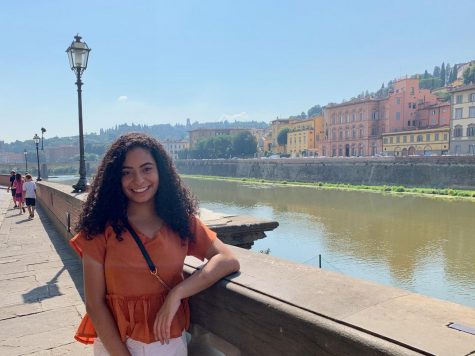
Corina Rodriguez is a senior majoring in communication with a double concentration in journalism and TV production, and a minor in Spanish. She has been...

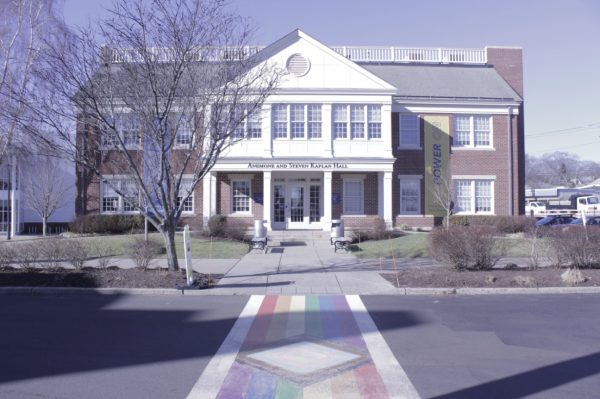

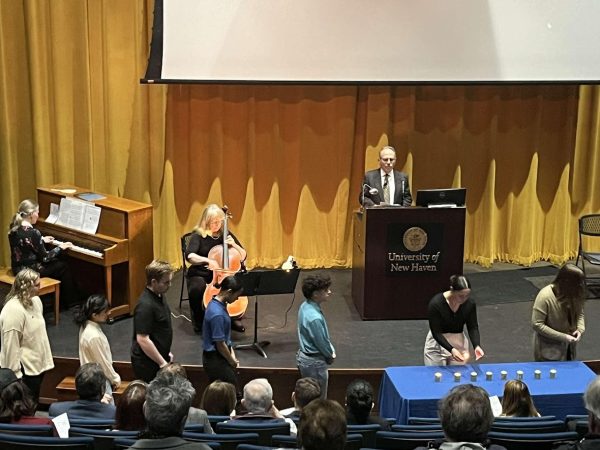
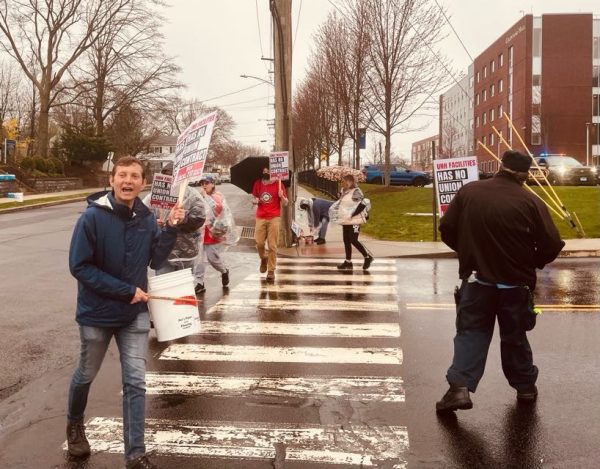





Serghei • Mar 7, 2018 at 1:29 am
War broke out in 2013? Really? Professor Lennon teaches THAT?!